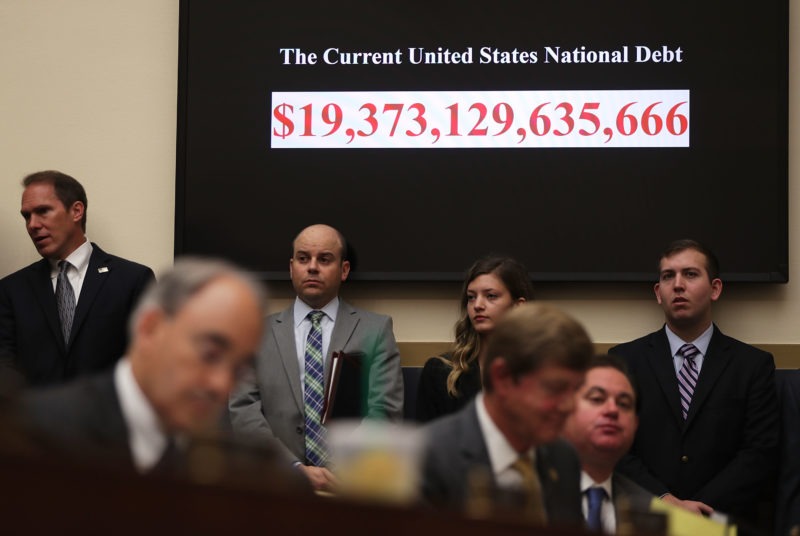Democrats, White House near deal to raise debt ceiling
US Democrats have nearly reached a deal with the Trump administration to raise the debt ceiling, allowing the government to avoid a disastrous default, sources close to the negotiations have said; a glance at the clock that shows the figure of current national debt, in a 2016 image
(ALEX WONG)
Washington (AFP) – US Democrats have nearly reached a deal with the Trump administration to raise the debt ceiling, allowing the government to borrow more money and avoid a disastrous default, sources close to the negotiations said Monday.
The “near-final agreement” would suspend the debt limit until the end of July 2021, and increase government spending by raising budget caps on defense and domestic outlays, one source said.
Republicans and Democrats have been hammering out the broad constructs of a deal for weeks as they faced calls to approve the agreement in the House by Friday, when the chamber begins a six-week recess.
The agreement would include roughly $75 billion in spending increase offsets, giving the White House about half of the savings it had sought, the source said.
“Both sides will be unhappy with some aspects -– a true compromise,” he added.
The deal has been negotiated by House Speaker Nancy Pelosi, who is the top Democrat in Congress, and Treasury Secretary Steven Mnuchin, but it remained unclear whether President Donald Trump would sign off on it.
The compromise, with its boosted spending and narrow savings, is expected to push the annual budget deficit to more than $1 trillion next year.
“With federal debt at more than $22 trillion and counting, this is not a game,” tweeted congressman Mike Johnson, who chairs the conservative Republican Study Committee.
The group has stated it wants the cost of any deal to be fully offset by spending cuts, and says spending should comply with limits laid out in a 2011 law.
“I encouraged President Trump yesterday to hold the line in the budget negotiations,” Johnson said.
Mnuchin warned last week that the government could run out of money in early September — before Congress reconvenes — absent an agreement.
The Democratic-led House goes on summer break July 26, but the Senate, controlled by Trump’s Republicans, is in session for an additional week.
Officials have issued dire warnings that without an increase in the borrowing limit, the US could default on its debt for the first time and they have been urging the legislature to act.
Because the federal government traditionally runs a budget deficit, it has no choice but to borrow to finance government operations, including salaries, retirement benefits, social spending and other expenses already approved by Congress.
Disclaimer: Validity of the above story is for 7 Days from original date of publishing. Source: AFP.


